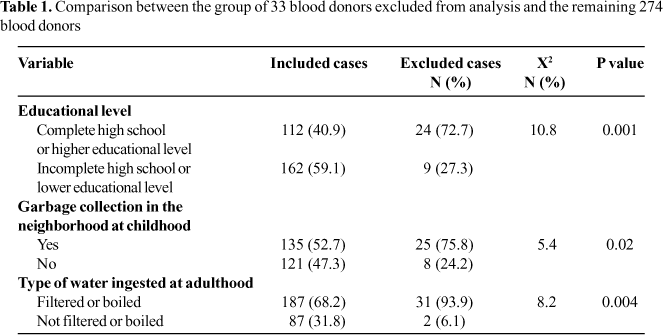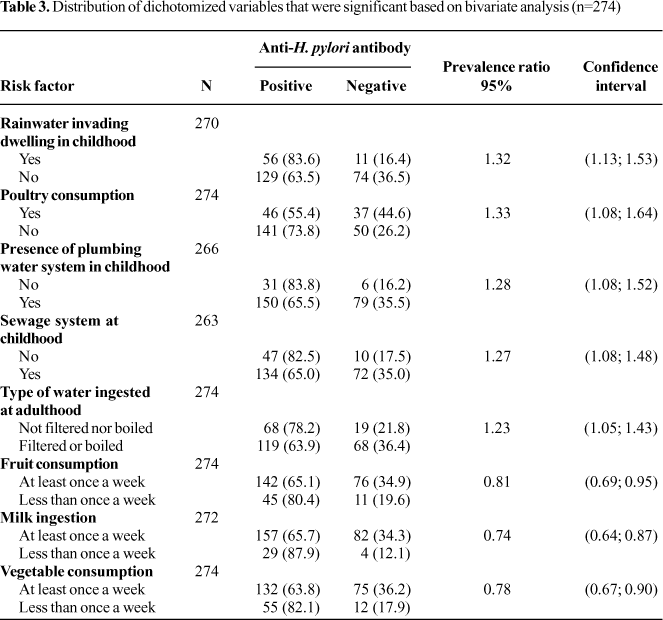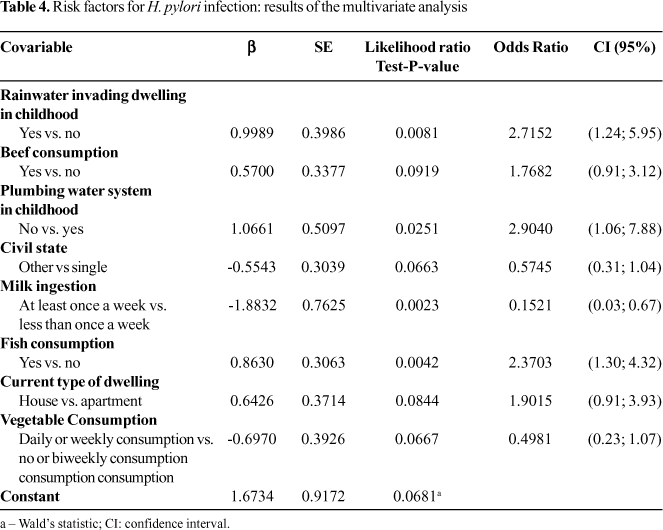Helicobacter pylori plays an important role in the etiology of peptic ulcer disease. Its prevalence appears to be higher in developing countries. We evaluated the seroprevalence of H. pylori and risk factors associated with infection in voluntary blood donors who attended the main blood center of the city of Salvador, Brazil. The subjects responded to an epidemiological questionnaire, with information about sex, age, race, lifestyle, social-economic level indicators, and residence and hygiene conditions. Anti-H. pylori antibody was determined by ELISA (Cobas Core, Roche). Three hundred and seven subjects were included in the study. Anti-H. pylori antibody results were indeterminate in 33 individuals (10.8%), who were excluded from analysis. Among the remaining 274 subjects, 187 (68.2%) were anti-H. pylori positive. Based on multivariate logistic regression analysis three variables were found to be significantly associated with a higher prevalence of H. pylori infection: absence of plumbing in the residence during childhood, a history of rainwater invading the dwelling during childhood, and low ingestion of milk.
H. pylori; seroprevalence; risk factors; Brazil




